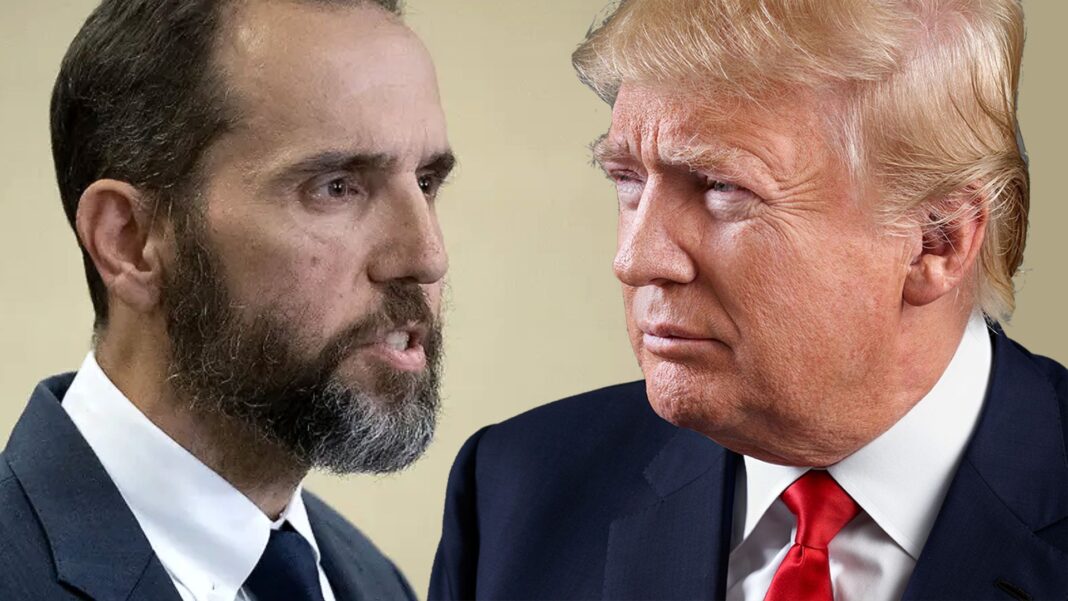The report by the House Impeachment Committees on Oversight and Accountability, Judiciary, and Ways and Means recognizes that the DOJ’s stonewalling efforts secured another victory over Congress and the rule of law. It is unacceptable that Congress accepts administration after administration refusing to provide the documents and witnesses required to conduct its constitutional duty to oversee Executive branch activities and corruption.
In the 118th Congress, the Judiciary Committee sent 311 letters to agencies requesting information on its investigations and filed 40 reports. The other committees sent out a similar number of letters and filed many investigative reports. There can be no minimizing the importance of the letters and reports; however, all must appreciate they are “letters and reports,” nothing more. Congress did not impeach Biden, and DOJ is not prosecuting any alleged illegal activities in the reports. The Southern border remains open in direct contravention of federal law, and Congress does not provide legislative solutions to prevent similar conduct in the future.
The outcome remains unchanged despite the House’s rightful complaints about the administration’s refusal to make relevant witnesses available, the assertion of Executive Privilege, and the refusal to produce the requested documents. The next Congress will likely face similar challenges, and regardless of party, the Executive will continue to withhold information from Congress.
Even when real crimes are identified by a special counsel or Inspector General report, as in the Durham and Horowitz reports, excuses will be made to Congress as to why the Executive branch cannot provide the requested answers or documents. After the inconclusive investigations, Special Counsels file their reports, and the criminals secure high-paying media or lobbying jobs.
To paraphrase Ronald Reagan, Congress tear down the stonewall of obstruction. Accept that agencies will fully respond to Congress only when their budgets are impacted. All government agencies, government contractors, grant and subsidy recipients, and consultants care about the budget of the agency that pays them. If Congress wants honest answers to its questions, it must reduce every agency’s budget when it is evasive, tardy in response, deceitful, or stonewalls Congress. If a taxpayer, citizen, or business refused to cooperate with an agency investigation, they would be subject to significant penalties. Why should agencies be able to diss Congress without a penalty?
If the authorizing and appropriation committees of Congress would cooperate, they could create a process in which the authorizing Committee would report the actions of a non-cooperating agency to the appropriations committee. When an agency refuses to comply with a congressional request for information, Congress should reduce the agency’s budget by $25,000 a day per day of refusal for the first month it refuses to comply with the request, $50,000 per day for the second month, $100,000 for the third month, and on and on until compliance is achieved or the agency is defunded. Congress could then create a new, more cooperative agency.
While these penalties may seem extreme, they are similar to penalties imposed by EPA (in many environmental programs) every day on persons who “knowingly omit material information, or who make any false material statement or representation in any application, label, manifest, record, report, permit or other document filed, maintained or used for purposes of compliance.” Perhaps the old idiom – “What’s good for the goose is good for the gander” is appropriate.
Congress should generously grant Use Immunity to non-cooperating witnesses. Even if Congress exposes the corruption, it should be clear that the DOJ will not prosecute any person or supporter of the administration, as evidenced by the Horowitz and Durham reports of government corruption at the DOJ and FBI.
Congress and, in particular, Executive Departments have conflicting interests. Congress is investigating to discover the facts and understand what changes in the law are needed to prevent similar future violations of the law. On the other hand, the Executive Departments will do whatever is necessary to obstruct congressional investigations of Executive corruption or abuses of the law. Refusing to produce the requested information or witnesses needed for a congressional investigation into their activities is the primary way to obstruct congressional oversight.
Congress must recognize reality—he who controls the DOJ and FBI determines the rule of law in this country. Since the DOJ and FBI will not allow the prosecution of department heads, loyal advisors, and supporters, Congress must recognize that it is useless to believe criminal conduct will be prosecuted. Since the DOJ will not prosecute criminal conduct within the administration, Congress must generously grant Use Immunity to obtain the truth from non-cooperating witnesses and forget trying to protect the DOJ’s asserted discretionary right to prosecute when the “investigation is complete.”
“Use Immunity means that, while the government may prosecute a witness for offenses related to the subject matter of the witness’s testimony, the witness’ testimony itself and any fruits from that place may not be used against a witness in any criminal case except a prosecution for perjury arising out of testimony.” Use Immunity balances the protection of a witness’s Fifth Amendment rights against the need for Congress to secure the testimony for its investigation.
Congress has the sole discretion to grant Use Immunity. For separation of powers principles, Use Immunity is not self-executing by Congress as it is traditionally an executive function. Upon a majority vote of its members, the House must apply to the federal district court for an order to compel the testimony. 28 USC sec 6005 mandates the court issue the order. Moreover, neither the DOJ nor the courts can interfere with its grant. Section 6005 authorizes either House of Congress to grant Use Immunity once an individual refuses to give testimony or provide other information based on his privilege against self-incrimination. This process ensures that the witness’s Fifth Amendment rights are protected while allowing Congress to secure the testimony needed for its investigation.
The district court must grant the congressional request if it finds that in a proceeding before either House of Congress, the immunity request was approved by a majority vote of the members present, and the Attorney General was given ten days ‘notice.
If Congress is serious about an investigation, it should ask itself: What is more critical to maintaining the United States as a rule-of-law society—knowing the truth about our government’s criminal activity or continuously deluding oneself that the DOJ will prosecute criminals who are friends of the government? Congress must act now or render itself irrelevant.
Use Immunity was extensively used by the Democrats in Watergate and the Iran-Contra Affair. Once one House of Congress meets the conditions of the statute, granting Use Immunity is mandatory. “The court shall” issue the order, and the Attorney General is deprived of his normal discretion concerning granting Immunity.
Judge Sirica wrote in the Watergate trials, “[There is a] power of the Congress to inquire into and publicize corruption, maladministration or inefficiency in agencies of the Government.” He elaborated on this concept by quoting the classic 1885 study on Congressional Government by then professor Woodrow Wilson who emphasized that the “informing function should be preferred even to its [lawmaking] function,” for without strong oversight of the Executive, “the country must remain in embarrassing, crippling ignorance of the very affairs which it is most important and direct.”
Historically, Congress has been reluctant to grant use immunity since it can result in the DOJ’s inability to prosecute criminals. Since the DOJ will not prosecute criminals who are friends, supporters, and relatives of those in the Executive branch, Congress should not concern itself with preserving the DOJ’s deceit.
Congress has an obligation to get out the truth. It needs to start protecting the institution of Congress.
William L. Kovacs, author of Devolution of Power: Rolling Back the Federal State to Preserve the Republic. It received 5 stars from Readers’ Favorite. His previous book, Reform the Kakistocracy, received the 2021 Independent Press Award for Political/Social Change. He served as senior vice president for the U.S. Chamber of Commerce and chief counsel to a congressional committee. He can be contacted at wlk@ReformTheKakistocracy.com







